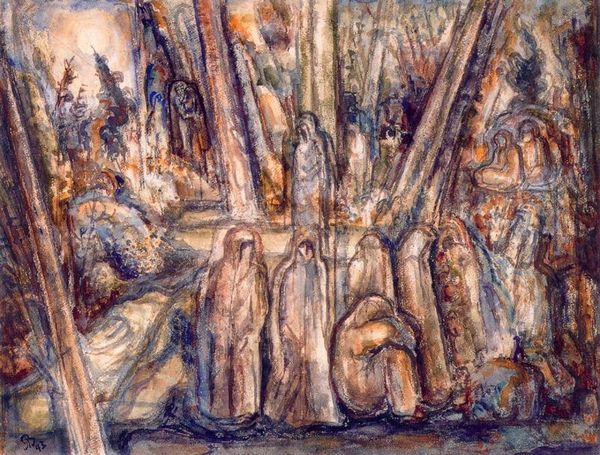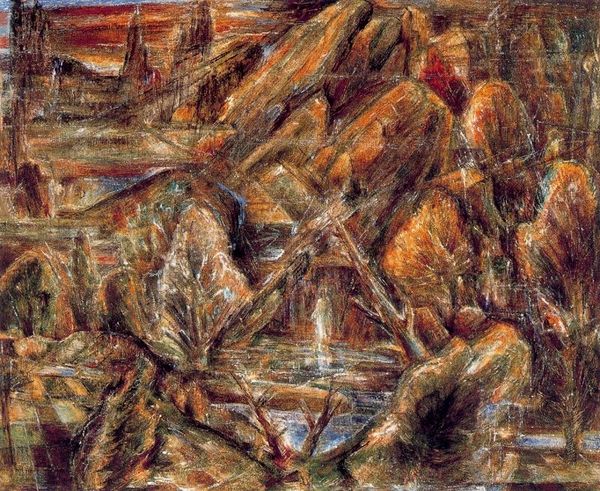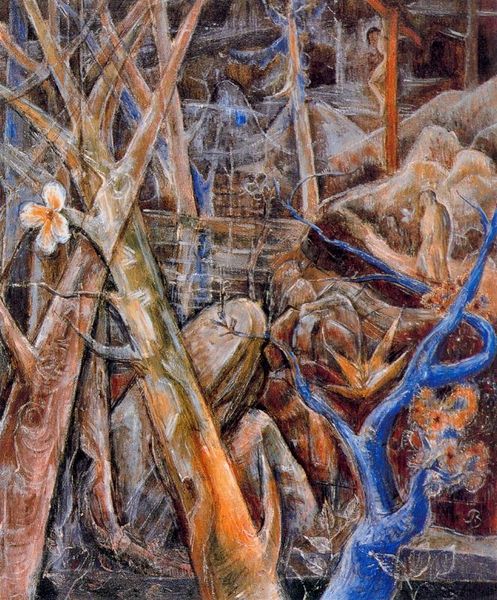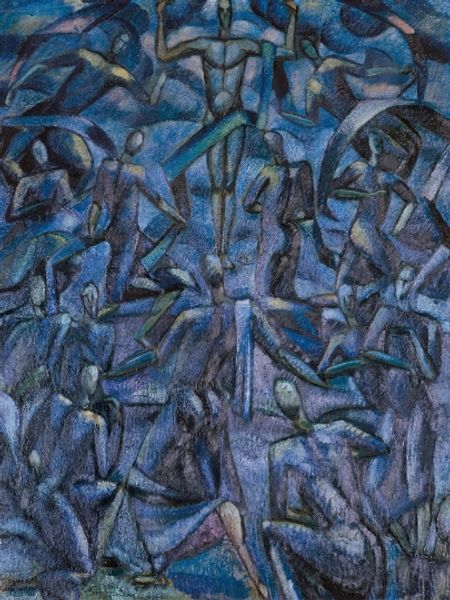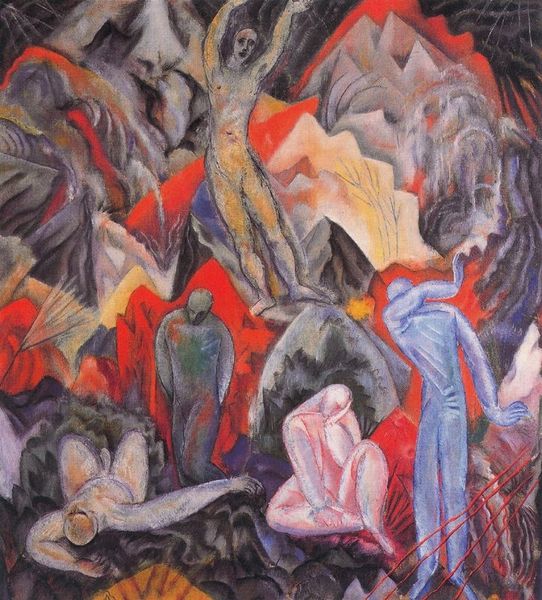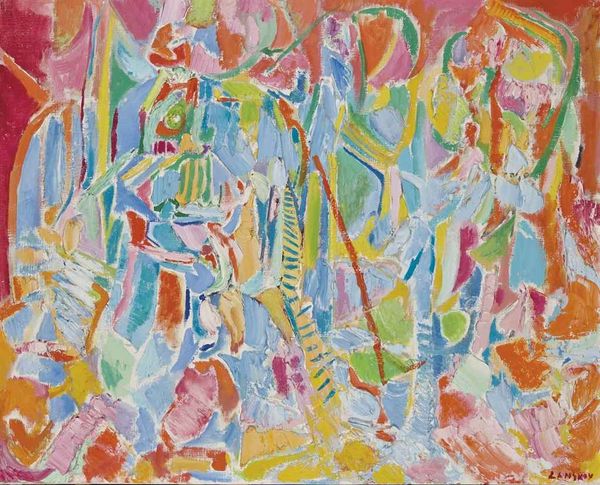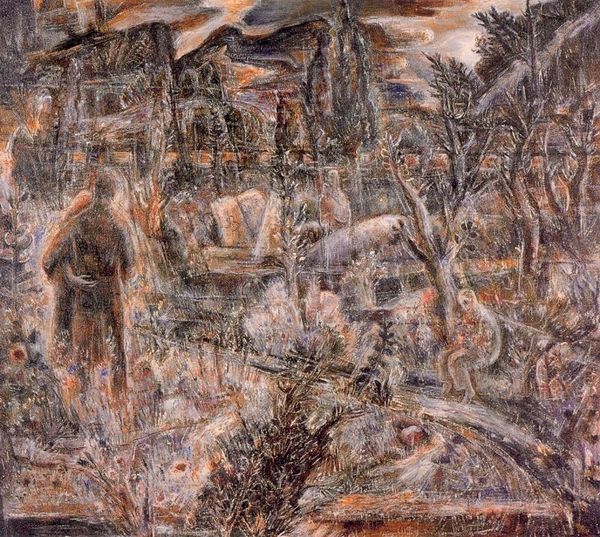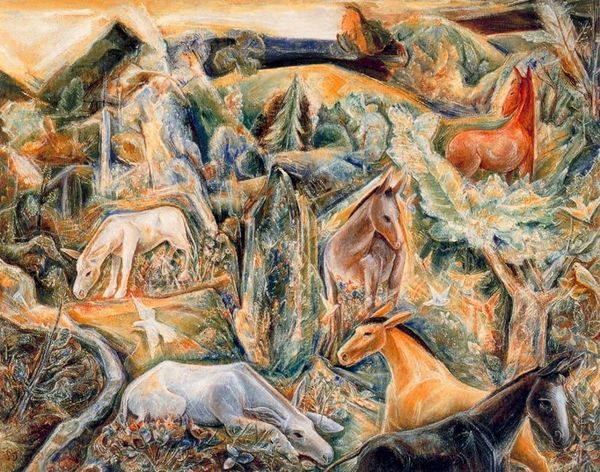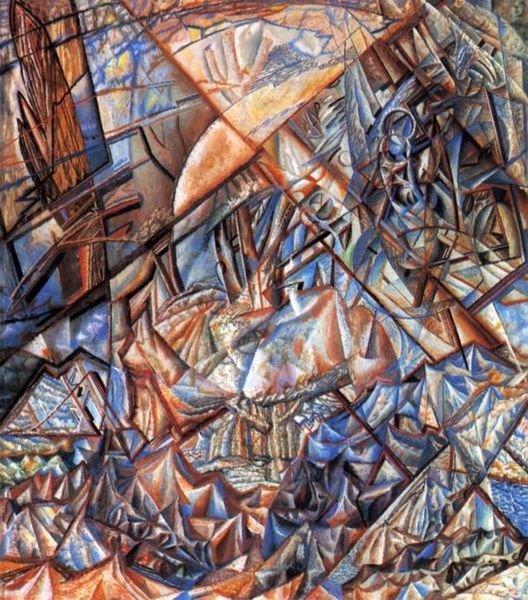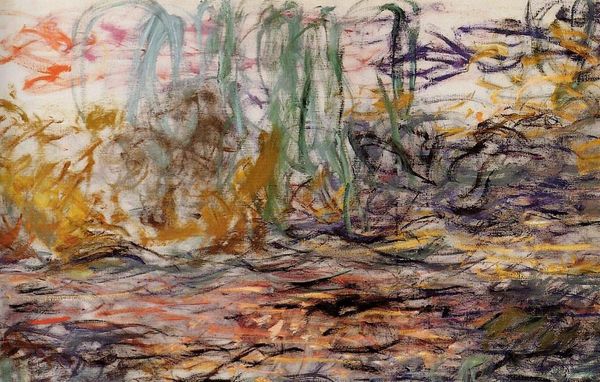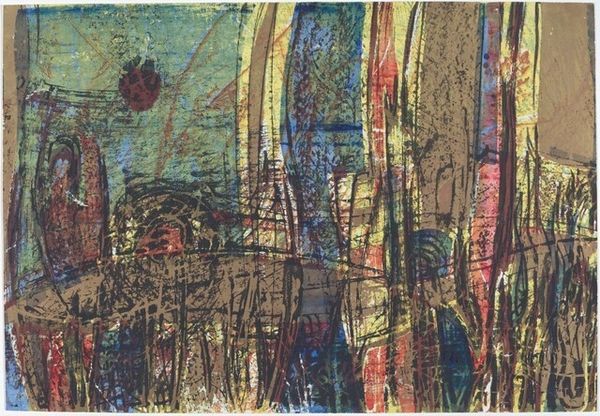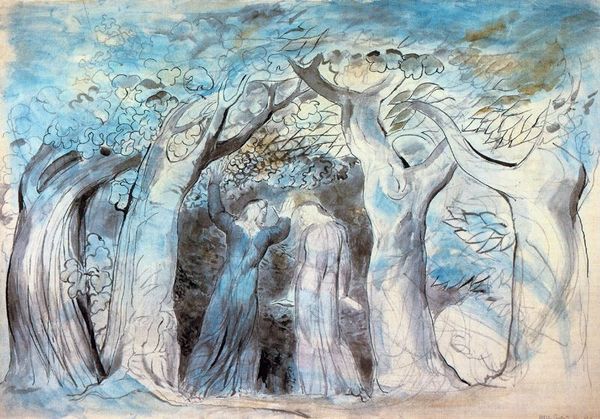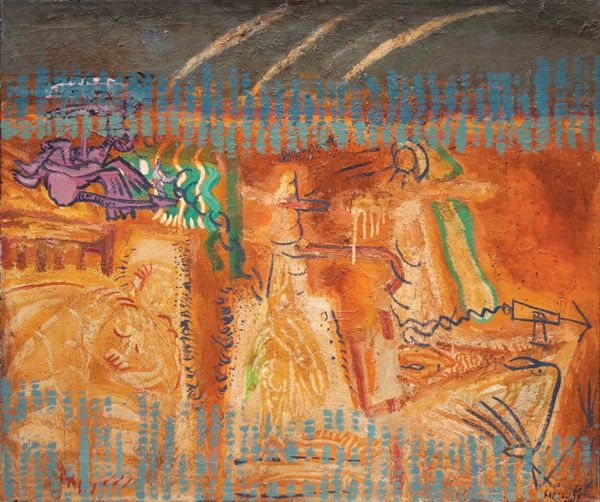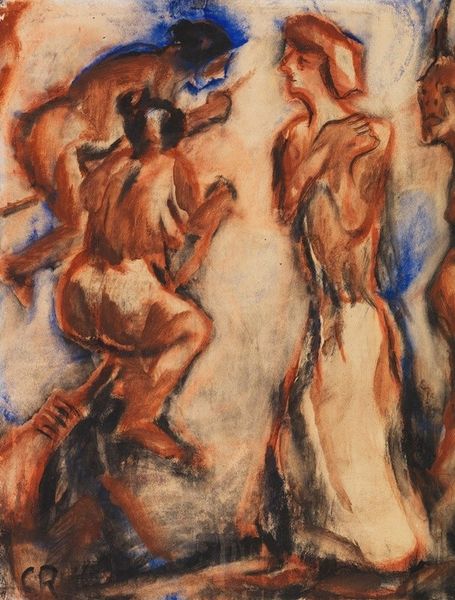
watercolor
#
abstract expressionism
#
fauvism
#
fauvism
#
landscape
#
watercolor
#
geometric
#
expressionism
#
abstraction
#
expressionist
Copyright: Albert Bloch,Fair Use
Curator: Looking at Albert Bloch’s watercolor painting "Blue Ravine," what's your immediate reaction? Editor: An almost dreamlike atmosphere. The blue tones give it a melancholic yet contemplative quality. There’s a real sense of immersion as if one were actually wandering within this ravine. Curator: Bloch was, for a time, deeply engaged with Expressionism. "Blue Ravine," while undated, presents an intriguing example of his style. The fracturing of form, combined with the vibrant, almost fauvist color palette, creates a powerful visual tension. How do these elements impact your reading? Editor: The geometric shapes feel primal, recalling natural forces that have eroded landscapes over millennia. The ravine isn't just a geological feature, it’s almost a visual metaphor for the earth’s aging and, perhaps, our own mortality. I am getting an overwhelming connection to earth. Curator: Interesting. Considering the historical context, Expressionism emerged during a period of immense social and political upheaval. Think of the growing anxieties about industrialization and the loss of traditional community structures. Do you see echoes of these societal shifts reflected in Bloch's piece? Perhaps the fracturing mirrors this instability? Editor: Yes, the fractured forms could symbolize a world on the brink, and maybe that search for raw emotional experience of his peers resonates here as well. At the same time, though, aren't we also drawn to representations of natural phenomena and sublime experiences, away from urbanization? Bloch's watercolor speaks to those desires too. Curator: I agree. It's important to avoid limiting art to reflecting trauma alone. Expressionism could offer possibilities for seeking catharsis and re-envisioning alternative forms of being. I think the deliberate choice to render this ravine, however abstract, points to a search for enduring presence and some solace. Editor: Right, so perhaps Bloch is revealing a psychological landscape of the modern human condition through this image—simultaneously burdened by instability, and hopeful of refuge in the enduring beauty of nature. That interplay gives it power. Curator: It does, yes. Ultimately, "Blue Ravine" allows us to reconsider the past in conversation with our current moment. Editor: An evocative experience and truly worthwhile observation.
Comments
No comments
Be the first to comment and join the conversation on the ultimate creative platform.
